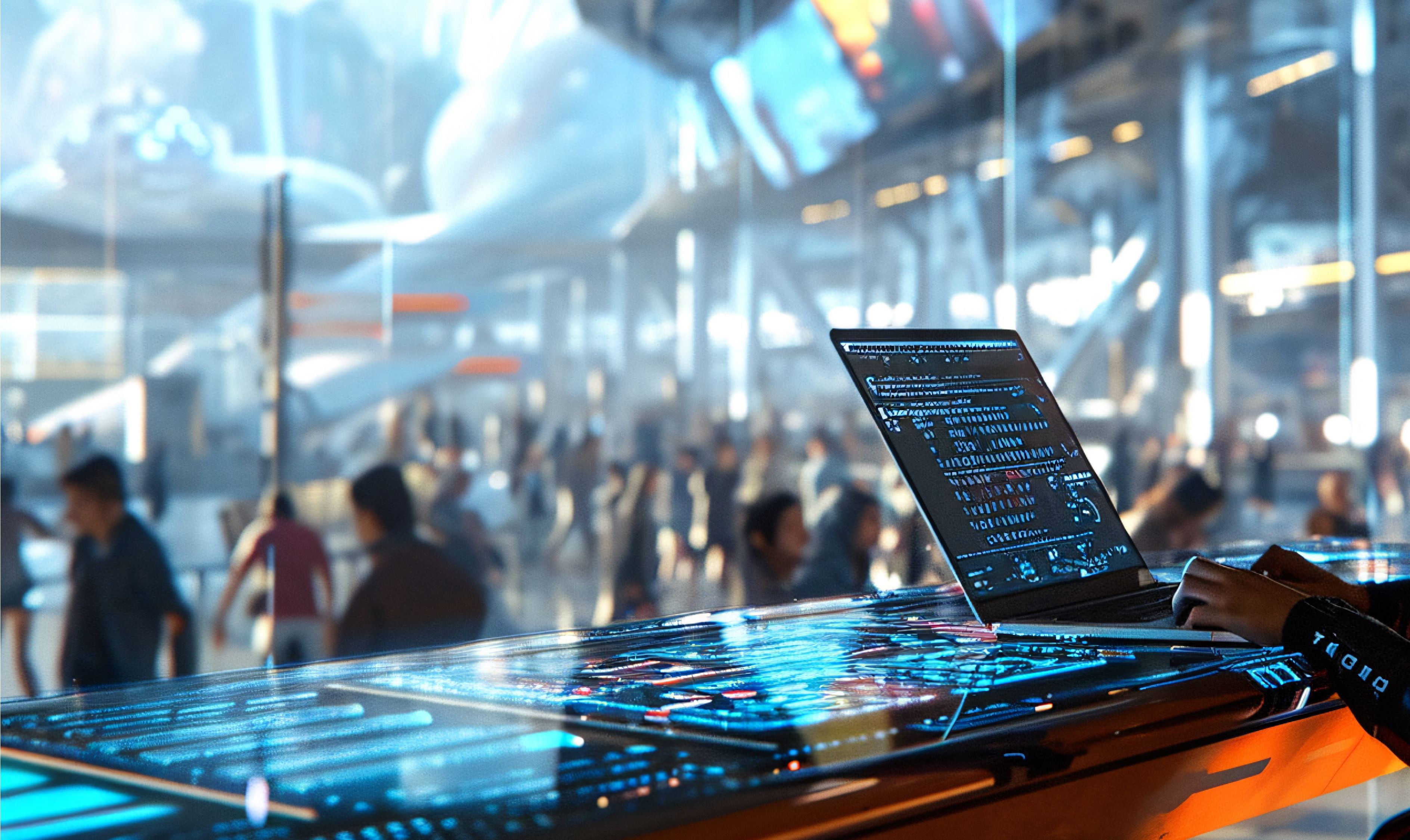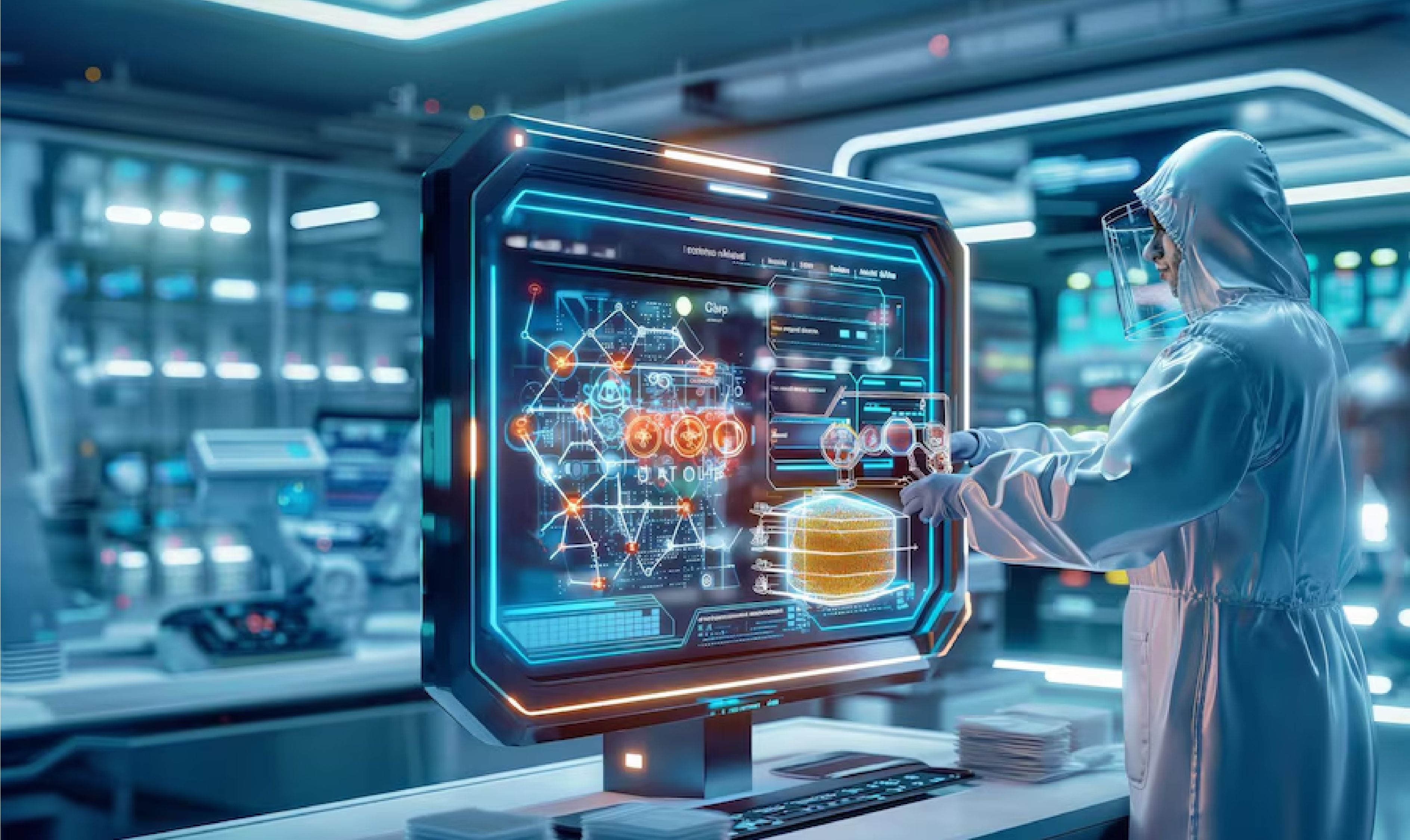Once, Generative AI and robots in manufacturing were considered a part of a dystopian future. It’s very much a reality, and we believe that it is a driving force toward sustainability and efficiency. AI in manufacturing is estimated to reach $20.8 billion by 2028, and more companies are becoming more welcoming. It has transformed almost all manufacturing processes, including product designing, planning, mass custom production, quality control, and supply chain management.
AI can play a vital role in pushing manufacturing companies towards a sustainable future. Will AI result in job loss in this industry? Experts say no, but it can change the way the industry operates. Hence, it is important to bridge the skill gap to work alongside AI. In this blog, we will explore how manufacturing can benefit from AI implementation, use cases, and if there are challenges associated with it.
Enhanced Product Design and Development

Generative AI in manufacturing has changed how teams approach the product design and development process. AI makes data analysis and visualization easier and provides creative and innovative product ideas. It can go through existing product designs, characteristics of materials, and designated performance metrics to suggest functionalities and features that your engineers and designers might overlook.
With this technology, you can create a product that matches the market’s demands. Electronics manufacturing companies can employ machine learning to identify material defects and work accordingly. This accelerates and optimizes the process, leading to innovative and sustainable applications. Manufacturing companies can use AI for demand forecasting, leading to better inventory and production management.
Generative AI can produce simulated scenarios to test products virtually before implementing them on the factory floor. So when a bottleneck arises, companies start working on product line modifications down the line, thereby reducing risks and associated costs.
Predictive Maintenance and Equipment Optimization
Artificial intelligence in manufacturing has improved the predictive maintenance and equipment optimization processes by 40%. It can be used to monitor if the machines are performing, or whether they need maintenance and optimization. If you don’t check these machines frequently, your production process might come to a halt. This reduces maintenance costs and improves overall equipment effectiveness, a critical metric in modern manufacturing.
Furthermore, generative AI can optimize equipment settings for different production runs, ensuring machines operate at peak efficiency. This level of fine-tuning can lead to significant improvements in energy efficiency and product quality. The AI can also learn from past maintenance data and equipment performance to suggest practical improvements.
Defect Detection
Quality control and defect detection are integral processes in manufacturing. So, how does AI play into that? Advanced techniques, like computer vision, can help manufacturers see minuscule errors that might escape the human eye. Manufacturers need to comply with strict rules and regulations, and AI can be used to maintain that.
AI can learn from past patterns, get better at identifying anomalies, and take preventive measures. This superhuman accuracy may result in waste reduction and maintaining product quality. When companies produce high-quality products, there is a lesser chance to recall or return them from the market. People are satisfied with the product, which means more brand loyalty and revenues from the customers.
Supply Chain Optimization

Do you think that the usage of AI in the manufacturing industry is limited to these things? You will be surprised to know that’s not the case. In fact, it can transform your supply chain management strategies to navigate disruptions and optimize logistics. Companies can use this technology to analyze global economic factors, weather patterns, and transportation data, and build a resilient network system.
As mentioned earlier, AI can be used for demand forecasting and aligning companies with market demands. The companies can work with their supply chains to optimize inventory and reduce costs. Additionally, AI in manufacturing can suggest the most efficient shipping routes and modes of transportation to reduce environmental impact.
Personalized Manufacturing
Nowadays, AI is at the height of personalizing production in the manufacturing industry. Enterprises can dynamically adjust manufacturing parameters for individual orders, allowing for cost-effective personalization at scale. It can also optimize packaging, delivery methods, and marketing strategies for customers or market segments, creating a truly personalized end-to-end experience. Therefore, they can scale their operations according to market opportunities without sacrificing efficiency. Also, these custom offerings enable companies to command premium prices and boost profitability.
Sustainability
AI in manufacturing is playing a crucial role in optimizing energy consumption and reducing waste. These systems can analyze energy usage patterns and equipment performance data to minimize energy consumption without impacting productivity.
People are worried about sustainability, and there is a trend, where people are rejecting one-use products. So manufacturers should produce products that follow the 3R cycle. AI can help companies reduce their carbon footprint, and produce products that are recyclable and reusable.
Workforce Evolution
Is there any concern about AI replacing human workers?
There are no clear right or wrong answers, but experts say that they are more nuanced. Like any other industry, AI is helping human capabilities, not rendering them useless. For example, engineers can use AI-powered tools to provide real-time guidance and decision support.
This human-AI collaboration can increase productivity, leading to satisfaction on both fronts, employees, and employers. AI specialists can decide how to develop and implement AI systems that work for the company, instead of investing in generic or traditional components.
How Does It Help In Automotive, Electronics, and Pharmaceutical Companies?

Automotive
If you work in the automotive industry, what production factors would you consider? Along with colors and design elements, you would also consider structural integrity, aerodynamics, fuel efficiency, and manufacturability. AI in automotive can generate thousands of iterations, analyzing their flaws, and making better versions in the next iterations. After deciding on a final design, car manufacturers can speed up the development time by 30% with AI.
Electronics
Electronics companies tend to rely on computer vision systems to perform quality control in their smartphone production lines. The reason is that these systems achieve a 99.9% accuracy rate, a feat that cannot be accomplished through human inspection.
Pharmaceutical
In a pharmaceutical company, generative AI can optimize production, scheduling, and supply chain management. The AI system can predict what type of medicine or machines are currently in demand and help the company create an efficient production schedule.
Are There Any Challenges to Adopt Gen AI In Manufacturing?
As you can see generative AI in manufacturing, has immense potential, but it also has its challenges. The manufacturers need to consider data security and privacy concerns regarding proprietary designs and production data.
We have not nailed the ethical considerations of AI implementation on its head, though. Yes, there are some regulations, but mostly, it depends on the company’s disposition. Manufacturers should come up with an internal playbook to ensure responsible usage of AI and its impact on the workforce. It requires a significant investment in technology and human capital. One way to achieve that synergy is to focus on workforce reskilling programs.
Do we think that generative AI is changing the game in the manufacturing industry? Yes, definitely. The way it can revolutionize product designs, optimize supply chains, and improve sustainability is phenomenal. As it continues to evolve, manufacturers who embrace and integrate AI solutions will be well-positioned to thrive in an increasingly dynamic global market.
The most successful companies rely on generative AI and human workforce to understand consumer consciousness and behavior and produce products accordingly. Chirpn's AutoCAR integrates artificial intelligence (AI) into manufacturing processes. Manufacturers can breeze through quality control, predictive maintenance, and supply chain optimization and save time using this system. If the goal is to provide personalization to the masses, companies need to invest in the future, in AI.

